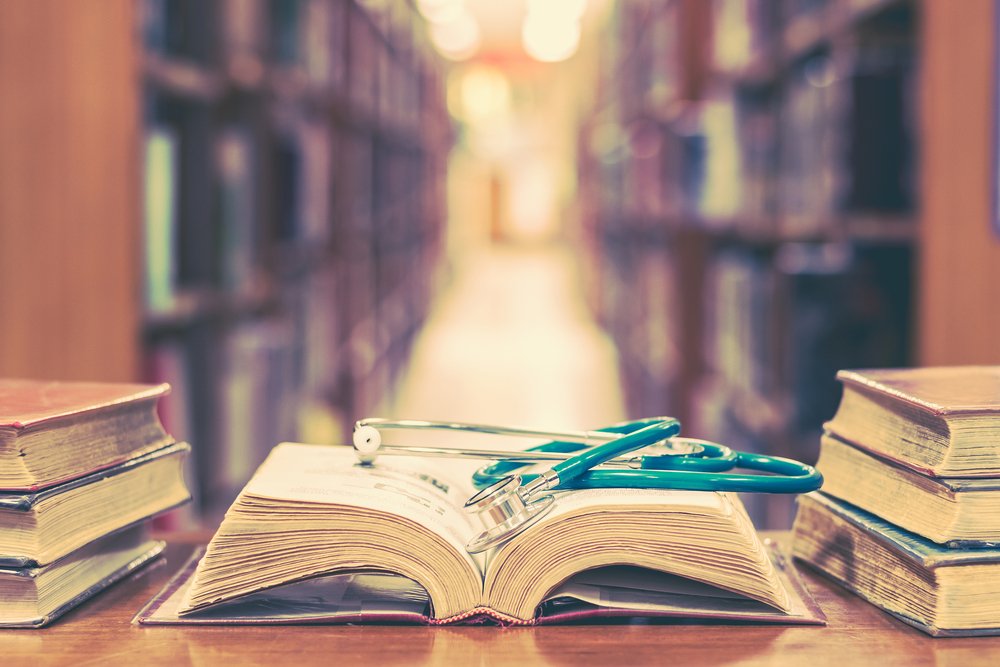
As a first-year medical student, the transition to an online curriculum has posed a unique set of challenges. I am often asked, “How exactly can you become a doctor without having seen a patient, without having put a stethoscope on another human being?” I’ve been told many times already by my professors that to listen to one of the four heart sounds, I should place the diaphragm of my stethoscope between the second and third intercostal spaces on the right side of the patient to hear the “lub dub” of the aortic valve. I have seen this process multiple times online, and it has been extremely well diagrammed in some of my lectures. From watching online videos, I know what a heart murmur sounds like and how it differs from a normal heart’s beatings. I have also seen videos by experienced physicians on how to perform a physical exam. From memory, I can picture their hands over the patient’s skin percussing to determine if there is an enlarged liver or spleen. So, what is the problem? I am still learning the crucial skills required of me as a first-year medical student, even if it is through a video screen.
Abraham Verghese, a Stanford physician, once gave a TED talk on the power of touch. In that talk, he discussed the importance of a physician performing a physical exam on their patients. He told the story of a friend who was diagnosed with breast cancer. After thoroughly analyzing her options, she chose to be treated at one of the world’s leading cancer centers. Verghese, who had run into her sometime later, was shocked to find out that she had left the cancer center and chosen to come back to her hometown to be treated by her private oncologist. Upon further questioning, his friend had said that while there was a grand piano in the lobby that played itself and the facility had some of the world’s best imaging modalities, she felt a distinct disconnect with her medical providers; her physicians had not once directly examined her body or touched her cancer-ridden breast. While one can easily argue that the advanced imaging had given the physicians information far beyond the scope of any physical exam, the element of human touch, as it is to most people, was extremely important to her.
So how does a physical exam relate to my learning in an online world? It’s the same point that Verghese’s friend made to him: Am I not learning more efficiently in an online world? Of course, I am. I can slow down lectures I don’t understand, rewind if I have to, and take a break if I feel temporarily overwhelmed by the material. Am I not acquiring the same medical knowledge by attending lectures remotely? Yes, I am. In fact, my class average on our first exam was at an all-time high. Am I not developing the same skills that I would have in person? I can definitely use my stethoscope and do a physical exam to the extent that is expected of a first-year medical student. But I am missing that critical human element in my learning, just as Verghese’s friend missed in her treatment at the world-class facility. My professors tell me to be compassionate to my future patients, but there is an intangible quality that is lost when I am not there in the room to witness the expression of this compassion to a worried patient. I miss the nuances in their techniques and the subtleties of how to talk to patients. This is difficult because I know one day, I will have to look my patients in the eye and deliver a diagnosis that they don’t want to hear.
However, as a student of science and a future physician, I cannot fault any school for this. Covid-19 poses a serious medical threat, and this is the only safe way for me to learn and my professors to teach. Quite honestly, schools have done a remarkable job of adapting to an unprecedented time. My professors have had to change their teaching methods in weeks and can still deliver remote instruction effectively, and I am grateful to them. The pandemic has only further strengthened my passion to become a physician. I wish there was a way to develop that humanistic touch, to learn directly from those who have spent their lifetimes perfecting their craft, rather than having to figure it out on the fly, as I fear I may one day have to do.
Karan Patel is a medical student.
Image credit: Shutterstock.com
